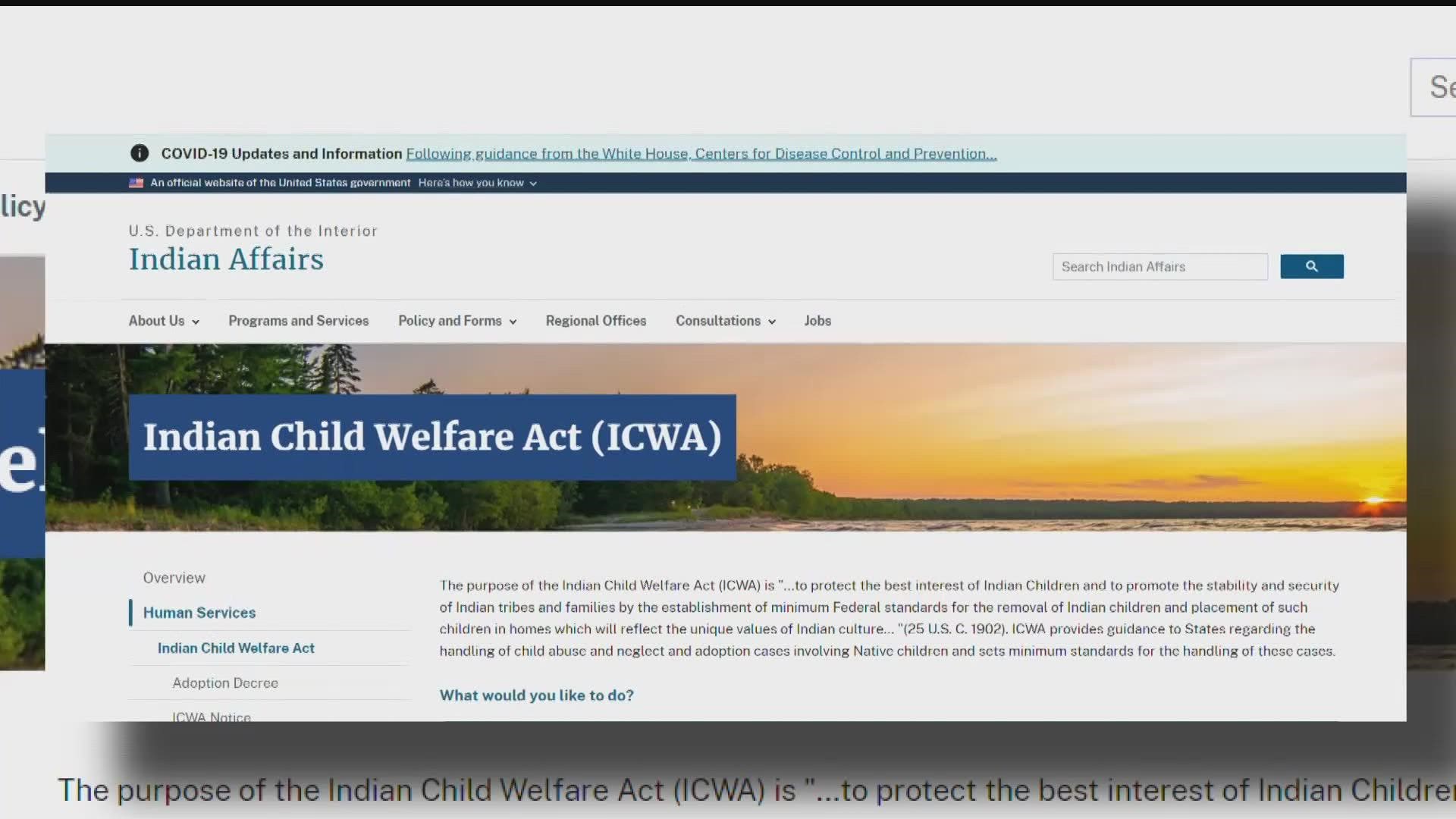MINNEAPOLIS — "As soon as the Supreme Court agreed to hear Haaland vs. Brackeen, we were very concerned," said Marisa Miakonda Cummings, president of the Minnesota Women's Indian Resource Center.
SCOTUS weighed challenges to a native American adoption law Wednesday. The Indian Child Welfare Act (ICWA) of 1978 addresses concerns that Native American children were being separated from their families and too often placed in non-native homes.
But a lawsuit alleges the law could be interpreted as a form of discrimination.
"I had a native aunt and uncle that were raised in a non-native home and felt completely disconnected from their people," she said.
Cummings, along with several tribes, say removing children from their homes and separating them from their cultural identity, language, and tradition, is harmful.
"I am an American and I am also a member of the Omaha Tribe of Nebraska, and I am a tribal citizen of the Omaha people, and that dual status is recognized in cases of ICWA, and I've been a foster parent via ICWA and my grandmother was a boarding school survivor, who was coerced into adopting out two of her children," said Cummings.
In Wednesday's hearing, there was both support for the law and concerns.
The law is defended by the Biden administration and five tribes who say the law doesn't discriminate based on race but focuses on tribal identity.
"In this case, they are trying to solidify that Native American people are a race of people, our political status as a sovereign nation, our political status comes from treaty signings, and to make us a race of people takes away the ability of our tribal nations to determine the citizenship of our own people," Cummings said. "Your naming, the ceremonies we go through as we grow and evolve, all of that is part of our healing, and when that is forcibly removed, we wonder why we have the disparities."
Cummings fears a potential ruling could pave the way for challenges to tribal sovereignty down the line.
"We need to educate people in the community and have them stand up for us in places where we are not," she said.
It's unknown when a decision will be handed down by SCOTUS in this argued case, but in general, a case will be decided during the term, ending in June.
Watch more local news:
Watch the latest local news from the Twin Cities in our YouTube playlist:

